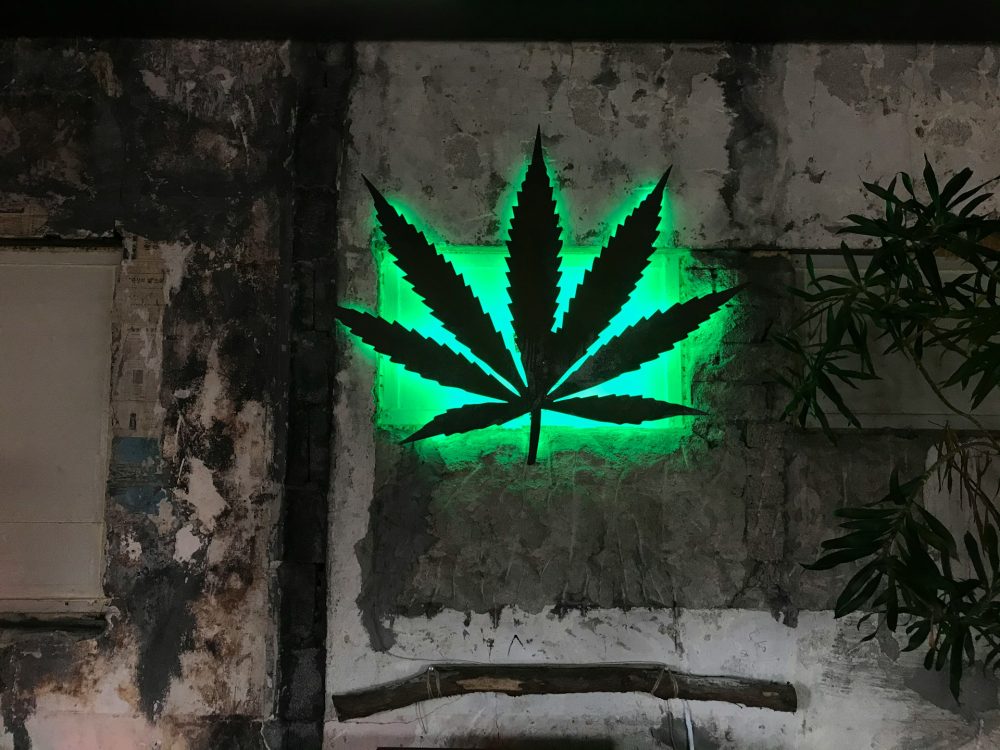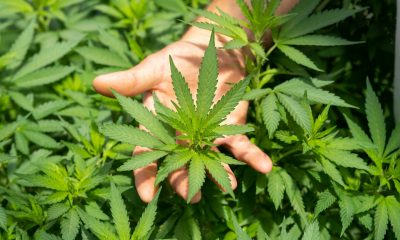Cannabis
Germany’s Cannabis Legalization Backfires as Smuggling Surges
Germany’s partial cannabis legalization backfired, fueling smuggling instead of weakening the black market. In 2024, seizures rose sharply: 12.6 tons of marijuana (+50%), alongside large amounts of cocaine, heroin, hashish, and meth. Limited cannabis clubs and low legal supply leave demand unmet, pushing buyers to smugglers. Experts urge licensed cannabis stores to curb crime.

Germany has partially legalized cannabis. The idea was to weaken the black market. Instead, something surprising happened.
Cannabis smuggling into Germany has skyrocketed
Instead of a decline, German Customs saw a massive increase. In 2024, over 12.6 tons of marijuana were seized . That’s nearly 4 tons more than the year before. That’s an increase of around 50% .
In 2024, customs officers confiscated 16 tons of cocaine, over 12.6 tons of marijuana, 88 kilograms of heroin, 1,078 kilograms of hashish and 264 kilograms of methamphetamine (crystal).
How do we know? The information comes from official annual statistics, confirmed by Finance Minister Lars Klingbeil. This situation raises questions. Why isn’t legalization working as planned?
Partial legalization is not enough
In Germany, you can grow up to three plants at home. There are also cannabis clubs, called Cannabis Social Clubs. In these clubs, you can grow cannabis and share it with members. Each club can have a maximum of 500 members.
The problem is this: only about 300 such clubs have been granted permission. That’s very few. The market is huge. Germans have high demand for cannabis. Legal supply is minimal.
Many people thought importation had become legal in Germany. This is not true. Importation, exportation, and transit are still criminal offenses. Customs authorities see a clear connection. The increase in smuggling is due to the implementation of the new law.
Main reasons for the increase in smuggling
Smugglers have excellent conditions to operate. Why? Because the legal market is almost nonexistent. Anyone looking to buy cannabis still has to look for it on the black market.
Smugglers operate in organized groups and use a variety of methods. Smaller quantities of cannabis often enter Germany from the Netherlands. Larger shipments? These come from Spain, via France. Shipments also arrive from the US, Canada, and Thailand, transported by sea or air.
Demand for medical marijuana is also growing. Germany is importing more and more of it. This shows that people need easy access. A planned new law aims to make access to medical marijuana via teleconsultation more difficult, which could worsen the situation.
What’s next? Assessment and forecasts
Customs authorities are clear: it’s unclear exactly how much of the smuggling is related to legalization. Nevertheless, the connection is clear.
The first review of the Cannabis Act (CannG) is scheduled for the fall. It’s already clear that changes are necessary. To effectively combat the black market, cannabis stores must be introduced.
Only then will legal supply meet demand. Then smuggling will cease to be so profitable. This is the only way to weaken organized crime groups in Germany.
__
(Featured image by Jinsoo Choi via Unsplash)
DISCLAIMER: This article was written by a third party contributor and does not reflect the opinion of Born2Invest, its management, staff or its associates. Please review our disclaimer for more information.
This article may include forward-looking statements. These forward-looking statements generally are identified by the words “believe,” “project,” “estimate,” “become,” “plan,” “will,” and similar expressions. These forward-looking statements involve known and unknown risks as well as uncertainties, including those discussed in the following cautionary statements and elsewhere in this article and on this site. Although the Company may believe that its expectations are based on reasonable assumptions, the actual results that the Company may achieve may differ materially from any forward-looking statements, which reflect the opinions of the management of the Company only as of the date hereof. Additionally, please make sure to read these important disclosures.
First published in Fakty Konopne. A third-party contributor translated and adapted the article from the original. In case of discrepancy, the original will prevail.
Although we made reasonable efforts to provide accurate translations, some parts may be incorrect. Born2Invest assumes no responsibility for errors, omissions or ambiguities in the translations provided on this website. Any person or entity relying on translated content does so at their own risk. Born2Invest is not responsible for losses caused by such reliance on the accuracy or reliability of translated information. If you wish to report an error or inaccuracy in the translation, we encourage you to contact us.

-

 Impact Investing1 week ago
Impact Investing1 week agoCDP Approves €1.5 Billion Package to Boost Industry, Renewables, and International Development
-

 Crypto2 weeks ago
Crypto2 weeks agoUniswap and BlackRock Partner to Launch BUIDL in DeFi
-

 Impact Investing2 days ago
Impact Investing2 days agoThe Sustainability Revolution: Driving a Net-Zero, Nature-Positive Economy
-

 Biotech1 week ago
Biotech1 week agoNew Molecular Clues Explain Aggressive Neuroblastoma and Point to Targeted Treatments

























